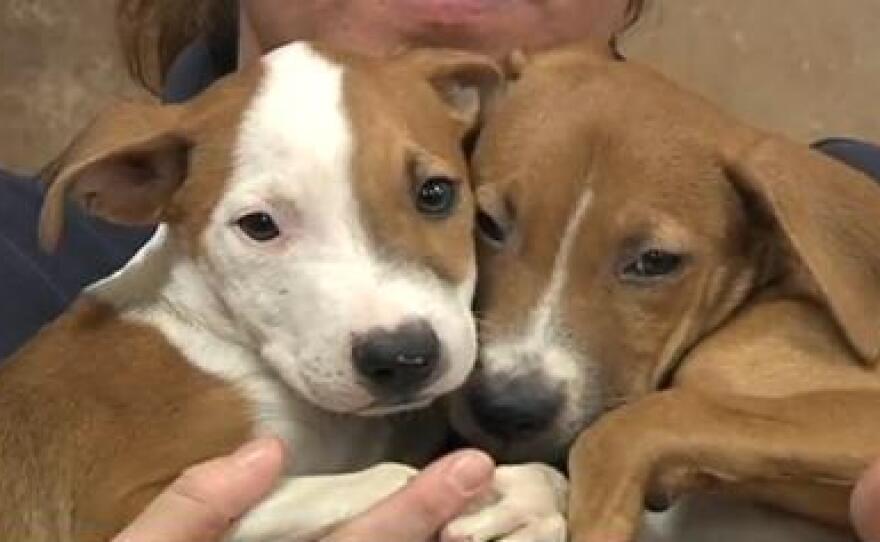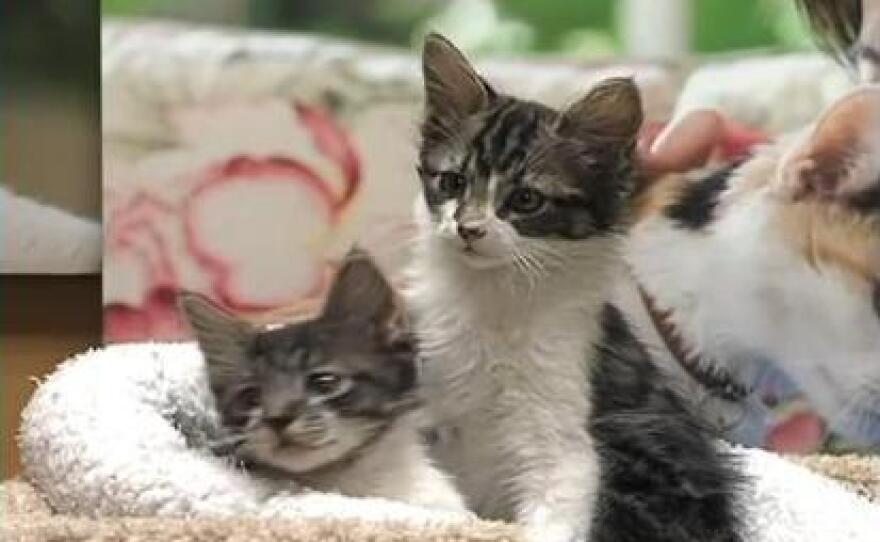FORT WORTH - Webster’s online dictionary defines euthanasia as “the act or practice of killing or permitting the death of hopelessly sick or injured individuals (as persons or domestic animals) in a relatively painless way for reasons of mercy.”
In the City of Forth Worth, it’s not an issue of the hopelessly sick or injured, but overcrowding that has shelter officials considering mass euthanizing of healthy animals, an act not performed there in more than two years.
The Forth Worth Star-Telegram reports that 560 animals have been brought to the shelter over the past week. The normal maximum population is 400.
Brandon Bennett, director of Code Compliance, tells the paper, "With the success of our partnerships with PetSmart Charities and others, we haven't had to face the prospect of euthanizing healthy, adoptable ... animals until now.”
Typically in late spring and early summer the shelter sees a population increase because of new litters of puppies and kittens. That’s no different across the state, where animal overcrowding is a constant issue, especially in rural communities.
Jodi McIntier is the president of the Commerce Humane Association/Frank Barchard Memorial Animal Shelter, a no-kill shelter based in Wolfe City.
“I guess the number one reason for this large influx of animals, especially this time of year, is that the fact that it’s breeding season and people do not spay and neuter their animals like they should,” McIntier said. “So come early spring, every shelter is faced with a tremendous burden of what to do with all these unwanted babies that we’ve gone out and produced because we’re not responsible for our own pets.”
But McIntier admits that in some situations animals are brought to the shelter because its owner is responsible and understands he/she can no longer afford a pet.
“Getting a pet is a big responsibility and people need to think about that when they step out into it. I want every animal in a home as much as anybody but when you take that pet on you’re taking on the responsibility for the whole life of the pet.”
Another problem locally is the abandoning of dogs and cats when owners move out of the area.
Dallas television station KTVT reports the Fort Worth shelter has reached out to other adoption agencies to help. Board members of the Wolfe City shelter, however, have decided against providing assistance, according to its president.
“The agreement with our board was ‘no, we needed to take care of our own,’” McIntier said. “If we go to Fort Worth to pull dogs, we’re going to kill dogs in Hunt County. And we have to take care of Hunt County first.”
McIntier added that doesn’t mean she’s not shopping for a home for those dogs, noting her connections up north where dogs are often sent.
She says the shelter does pull from the surrounding counties and has pulled from as far as Fort Worth before when the need in Wolfe City wasn’t high.
The Frank Barchard Memorial Animal Shelter has a maximum capacity of 300 animals. At last count, 136 dogs were living at the facility. McIntier says they try to keep the count around 100 in case there’s a large influx within a short period of time.
“We offer to the breeders that we will not prosecute. We will come in as long as they relinquish all their animals. We will come take everything and not press charges because our goal is to save the animal and not to drag people through court. So on the weekends we can easily get 300 dogs into the shelter.”
Update 6:09 a.m. Wednesday: KTVT reports dozens of residents arrivedat the shelter Tuesday to adopt pets and help reduce the overcrowding situation. But about 100 animals still need a home to avoid euthanasia .




